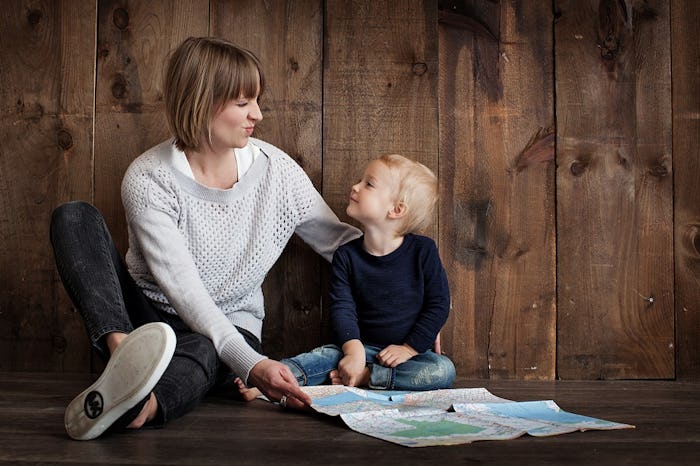Much like fashion trends or scientific discoveries, parenting tips evolve with the times. The advice your grandparents' and even parents' generations lived by to raise their children is a far cry from the advice experts promote today. Chances are, after hearing a few pieces of outdated expert parenting advice you should ignore, you'll be glad that you're raising children in today's era.
If you've ever had a conversation with any person who feels they've earned the right to give you parental input that starts with the words "in my day we did this" or "we did that, and my kid turned out just fine" you're probably familiar with a few of these pieces of sage advice that used to be considered normal.
Experts had very different ideas about what they considered quality parenting (hello, no seat belts and stomach sleeping.) And although some trends were worse than others, thanking the parenting gods that experts have move beyond these outdated parenting styles is in everyone's best interests. Although every family will differ when it comes to discipline, feeding, routine and many other aspects of family life, these pieces of advice from past experts are outdated at best, and ridiculous at worst.
1Your Child Won't Benefits From Breastfeeding Past Infancy
Extended breastfeeding was not a thing in past generations. In fact, according to statistics from the website for The Today Show, in 1977 only 25 percent of women breastfed their babies at all. Breastfeeding used to be considered the option for women who couldn't afford formula, not the healthy and natural way to feed your baby. And breastfeeding a child past infancy wasn't heard of.
Today though, there's a growing movement encouraging extended breastfeeding. In fact, one study from Science Direct showed that nursing past infancy can provide a child with nutrients that are crucial for their development and that the benefits don't decrease with age.
2Your Child Can Eat Solids Before 6 Months
Although the exact ages that parents were encouraged to introduce solids has varied greatly over the years, experts now realize that pushing the introduction of solids back to at least six months old is beneficial.
Parents noted that pediatricians used to encourage parents to feed their babies solids at six weeks old and even suggested they put rice cereal in their bottles to help them stay full. Nowadays, however, babies aren't fed solids until at least six months old and, according to Belly Belly, rice cereal isn't generally considered the best first food for babies. Current advice from Baby Center recommended starting babies on solids at six months, and that breast milk provides more than enough nutrients for them until that point.
3You Can Give Your Baby Water To Keep Them Hydrated
Similarly, doctors also used to recommend that babies be given water to ensure they stayed hydrated, especially in the warmer months. However, according to What To Expect, breastmilk and formula provides enough hydration for babies, no matter how hot it is outside. They don't need to be given water until they're about six months old or so.
4You Can Put Baby To Sleep On Their Stomach
One of the biggest parenting no-nos for today's parent used to be widely accepted — stomach sleep. Current research, however, has found that placing a baby on their back to sleep greatly reduces the risk of sudden infant death syndrome (SIDS.) According to Healthy Children, SIDS has declined by more than 50 percent since 1992, when the Back to Sleep campaign was instated.
5You Should Schedule Baby's Feedings
Belly Belly noted that this piece of advice led many moms to stop breastfeeding because of low supply or underfed babies. Experts now know that every baby is different, and every breastfeeding mother produces milk differently. Instead of scheduled feedings, Baby Center noted that experts now agree that letting baby take the lead when it comes to feedings is the best option through learning your child's hunger cues.
6You Spoil Your Baby By Holding Them
Although this isn't to say that parents of the past were cold and distant, there was a certain amount of distance that experts believed necessary for a child to gain independence. Some even went so far as to say that holding your baby too much can spoil them or be equated with "coddling," one piece from Parenting noted.
However, whether you practice attachment parenting or set more strict boundaries with your children, most experts believe that there's no such thing as spoiling a baby with too much attention. In fact, according to La Leche League International (LLLI,) nursing and holding your baby on demand is thought to lead to healthier and more independent children later in life.
